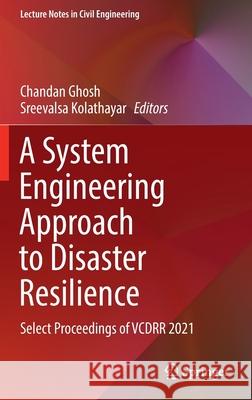A System Engineering Approach to Disaster Resilience: Select Proceedings of Vcdrr 2021 » książka
topmenu
A System Engineering Approach to Disaster Resilience: Select Proceedings of Vcdrr 2021
ISBN-13: 9789811673962 / Angielski / Twarda / 2022 / 572 str.
A System Engineering Approach to Disaster Resilience: Select Proceedings of Vcdrr 2021
ISBN-13: 9789811673962 / Angielski / Twarda / 2022 / 572 str.
cena 885,61
(netto: 843,44 VAT: 5%)
Najniższa cena z 30 dni: 848,19
(netto: 843,44 VAT: 5%)
Najniższa cena z 30 dni: 848,19
Termin realizacji zamówienia:
ok. 22 dni roboczych.
ok. 22 dni roboczych.
Darmowa dostawa!
Kategorie:
Kategorie BISAC:
Wydawca:
Springer
Język:
Angielski
ISBN-13:
9789811673962
Rok wydania:
2022
Ilość stron:
572
Waga:
0.96 kg
Wymiary:
23.39 x 15.6 x 3.17
Oprawa:
Twarda
Wolumenów:
01
Dodatkowe informacje:
Wydanie ilustrowane











